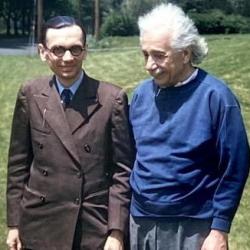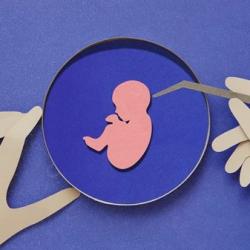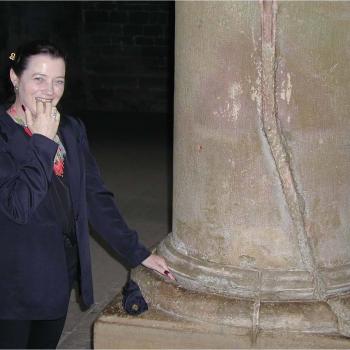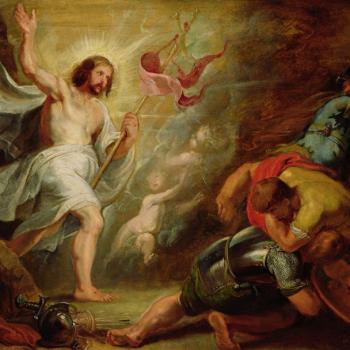ST 4116: Afterlife 6
Reincarnation
Reincarnation in the New Testament?

Elizabeth Clare Prophet poses on the Church Universal and Triumphant property in Paradise Valley in this Sept.1991 photograph.
“Does the New Testament teach the law of karma and reincarnation?” That was the question which Elizabeth Claire Prophet (1939-2009) and I debated.
Also known as Guru Ma, the shaman Elizabeth Clair Prophet founded the Church Universal and Triumphant (CUT) in 1975. Among the new age spiritual movements, CUT was perhaps the most aggressive at re-establishing ancient Gnosticism. In the 1980s she moved her cult of 750 residents to a 33,000-acre Royal Teton Ranch in Pardise Valley north of Yellowstone National Park (Peters 1991). That’s where Elizabeth and I met for a public debate.
Elizabeth quoted Jesus in the Sermon on the Mount.
“Therefore, whoever breaks one of the least of these commandments, and teaches others to do the same, will be called least in the kingdom of heaven; but whoever does them and teaches them will be called great in the kingdom of heaven” (Matthew 5:19).
That “kingdom of heaven” she continued, “has come near” or is “among you” (Matthew 10:7).
There you have it. The law of karma determines what happens in the afterlife, in the kingdom of heaven. And, that afterlife has come so near that it is among us now. Those who lived previous lives are among us now. That settles it, said Elizabeth Claire Prophet triumphantly, the Bible teaches reincarnation.
How was I to respond? After a cough and a sigh, I tried this on for size. “The law of karma is an impersonal principle. What we see in the Bible is the personal God of Israel reacting to our obedience or disobedience to the divine law. That’s a big difference!”[1]
Elizabeth’s argument for reincarnation was very weak, as you might agree. The presence of God’s future kingdom of heaven in Jesus’ teachings was his way of stressing the urgency of repentance. Nowhere in the New Testament does reincarnation appear as a doctrine resembling what we might find in India’s Dharma traditions.
Reincarnation and the Wheel of Rebirth
For the most robust doctrines of reincarnation, we should go to India. We should go to the Dharma traditions: Hindus, Buddhists, and Jains.[2] Just what is reincarnation?
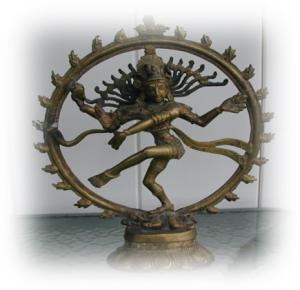
Our modern word, reincarnation, means to ‘enter the flesh’—to incarnate—more than once. The ancient Greek equivalent, metempsychosis (μετεμψύχωσις), derives from meta, ‘change’, and empsykhoun , ‘to put a soul into’, a term attributed to Pythagoras. Another Greek term sometimes used synonymously is palingenesis, ‘being born again’. Sometimes reincarnation is called transmigration of souls, from migrâre, ‘to move’, and trans meaning ‘across’ or ‘over’ lifetimes.
Think of your individual life as a gondola seat on a Ferris Wheel. Around and ‘round you go from birth to death and birth again. The cosmic dance of Shiva, called Anandatandava, is set within the ever-turning wheel of creation and destruction, of birth and death followed by rebirth. Saṃsāra is the word in Pali and Sanskrit for this unremitting cycle we know as reincarnation.
On the island of Bali in Indonesia, Hindu rice farmers localize reincarnation. Rice growing families are actually clans maintaining the land over centuries. Children learn to plant and harvest rice from their grandparents. And they replace the grandparents when they die. Parents name their children after deceased forebearers. Might these children actually reincarnate the dead relative they are replacing?
According to James Santucci who teaches comparative religion at the University of California at Fullerton…
“Reincarnation in the popular and most expansive sense of the term represents a transferal of an essence or substance from one body to another. As general as this is, it remains an unsatisfactory definition since it has been shown that the entity transferring from one body to another is not necessarily a substance and that the body or vehicle that receives this “substance” is not necessarily material, at least according to the broadly accepted understanding of matter (Santucci 2018).
Like the gondola on a Ferris Wheel, your soul or essence cycles unceasingly from one lifetime to the next.
Ātman and Anātman in Reincarnation
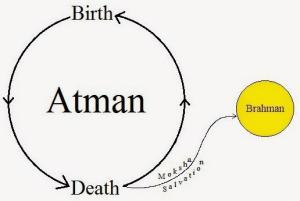
For the Hindu, the Sanskrit word for soul, ātman, identifies our essential self which is non-material and never changes. The ātman transmigrates from birth to rebirth multiple times. But, we ask: must one have an ātman to be reborn? Not if you’re a Buddhist.
The Buddhist believes in a soulless rebirth. You and I are not an ātman. Rather, we are an anātman or “non-soul.” What, then, gets reborn? Our karmically conditioned consciousness is what goes through the round of rebirth. Since our consciousness is imbued with the force of kamma, this karmic energy (kamma-vega) serves as the blueprint of defining the personality and physical characteristics of the individual undergoing rebirth. The individual is formed during each incarnation, and what has been formed influences what happens between death and rebirth.
Reincarnation and Karma
The relationship between karma and re-birth is important. According to the Learn Religions site…
“Very simply, Buddhism teaches that karma means “volitional action.” Any thought, word or deed conditioned by desire, hate, passion, and illusion create karma. When the effects of karma reach across lifetimes, karma brings about rebirth.”
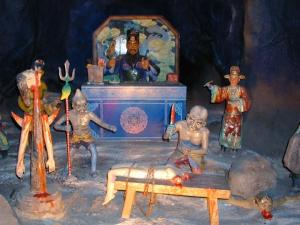
With the term karma, we refer to a law of cause and effect which over time forms the distinctive person you are. Karma accounts for the accumulation of past actions – mental, verbal, and physical – that constitute your identity as a bundle of predispositions or impressions.
The actions you take will generate reactions. What you cause will result in an effect. Some actions will cause effects in a future life. What you do in this life will have an effect on how you are born into the next life. That’s the law of karma.
“The doctrine of karma holds that, through the working of a just, automatic, and impersonal cosmic law, one’s actions in this incarnation and in all previous ones will determine which position in the hierarchy of living things one will occupy in the next incarnation. An individual’s karma can be improved through certain acts and omissions. By following the five precepts or commandments, a Buddhist can better his or her karma. These commandments are: do not kill, do not steal, do not indulge in forbidden sexual pleasures, do not tell lies, and do not take intoxicants or stupefying drugs or liquors….The most effective way to work actively to improve one’s karma is to earn merit. Any act of benevolence or generosity can gain merit for the doer.”
In short, an immoral action in this life will cause a punishment during the in-between state or in the next life. That’s the law of karma.
Jumping off the Wheel of Karma
The problem with being born is that life is so full of suffering. In fact, the first Noble Truth of Buddhism, dukka, means that to exist as a living creature is to suffer. Birth is suffering. Aging is suffering. Sickness is suffering. Divorce from loved one is suffering. Not to get what one wants is suffering. To watch the Oakland A’s play baseball is suffering.
Escape from the suffering of physical life is gained through god-consciousness, cosmic consciousness, union of your or my finite consciousness with infinity.
“...after God-realization has been attained, the soul body becomes mature enough that it no longer needs to take a physical incarnation. Instead, it continues its evolution on inner planes of consciousness. This release from samsara is called Moksha. The soul is said to be freed from the bondage of birth and death.”
To avoid suffering, I would want to cease to exist. At least cease to exist as an individual different from other individuals and other things. Like a water drop falling into the ocean and dissipating, I’d like to be absorbed into the divine infinite. How about you?
Liberation from Reincarnation
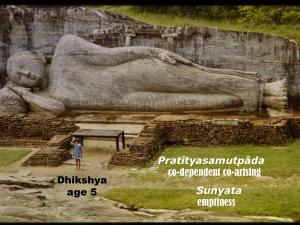
How can you or I jump off the wheel of karma? How can we escape Saṃsāra? How can we enjoy peace, bliss, fulfillment? First, we need liberation from reincarnation. Second, we need to realize the union of the finite with the infinte. For the Hindu or Jain, such liberation is called moksha or mukti. For the Buddhist, it’s nirvana. Tibet’s Dalai Lama looks forward to a time when we will no longer be reborn.
“Buddhists believe that there is no beginning to birth and that once we achieve liberation from the cycle of existence by overcoming our karma and destructive emotions, we will not be reborn under the sway of these conditions. Therefore, Buddhists believe that there is an end to being reborn as a result of karma and destructive emotions.”
Moksha for the Hindu is fulfillment. Moksha happens when the soul or ātman realizes its oneness with what is really real, namely, Brahman. Your or my individuality is not something we can own for eternity. Rather, we must realize ecstatically our total and exhaustive oneness with all things. And with the ground of all things, namely, Brahman. According to the Shvetashvatara Upanishad 3:7,..
“Still higher is Brahman, the supreme, the great, hidden in the bodies of all these beings, the One, encompassing the All, the Lord—having realized Him, men become immortal.”
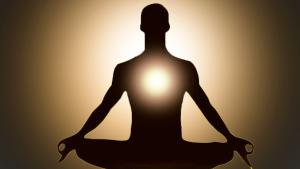
Once we have realized our oneness with all things and are no longer differentiated as individuals, we will escape the karmic law of cause and effect. We will escape rebirth. We will escape mortal suffering. We will escape reincarnation.
For the Hindu, to be at one with the All –with Brahman--constitutes fulfillment. For the Buddhist, the equivalent is the realization of emptiness. The All is equivalent to nothing, to no-thing distinct from other things.
What do Roman Catholics think?
What the average Roman Catholic lay peson thinks may differ from the theologian or priest.
“In a time where various new age teachings permeate a secular society, it is not much of a surprise that some thirty-six percent of Catholics believe in reincarnation (2018 Pew Research Study). Such a high number of Catholic believers in reincarnation is somewhat disheartening in light of the Catholic Church’s teaching on the subject. In general, the Church denies the possibility of reincarnation and condemns belief in it by Catholics.”
Thus speaketh Summa Catholic at Patheos.
What do Jewish people think?
Might someone within the Jewish tradition believe in reincarnation? Yes. In a Patheos post Yaakov Astor cites the Zohar.
“All souls are subject to reincarnation; and people do not know the ways of the Holy One, blessed be He! They do not know that they are brought before the tribunal both before they enter into this world and after they leave it; they are ignorant of the many reincarnations and secret works which they have to undergo, and of the number of naked souls, and how many naked spirits roam about in the other world without being able to enter within the veil of the King’s Palace. Men do not know how the souls revolve like a stone that is thrown from a sling. But the time is at hand when these mysteries will be disclosed” (Zohar II 99b).
What should Jewish people today think? First of all, “the idea of reincarnation is not rooted in the Bible,” observes Rabbi Naftali Brauer. Regardless, secondly, Judaism is porous. Judaism occasionally absorbs external religious insights. It’s not surprising that the esoteric subtradition of the Zohar may tary with reincarnation. Even so, Judaism at large affirms resurrection instead of reincarnation. So do other biblical traditions such as Christianity and Islam. This is the observation of Aaron Reich writing in the Jerusalem Post.
What do Scientologists think?
For Scientologists, the true self is the spirit, the thetan, the eternal essence of each individual. For millions and millions of years prior to this life, the thetan has existed and inhabited numerous bodies. Scientologists share belief in the wheel of rebirth with Hindus. But there are differences. The Scientologist variant resonates with the image in the Bhagavadgita of dying as analogous to someone shedding clothing (the body) and putting on new clothing (a new body). But, in contrast to Hinduism, Scientologists deny the law of karma. And Scientologists deny judgment in the afterlife. The thetan does not experiencie any kind of moral judgment between lives.
Immortality of the Soul vs Reincarnation
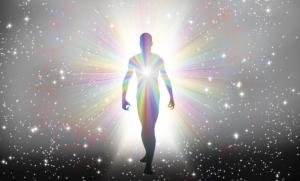
In a previous post, we looked at the concept of the immortal soul. Accordingly, our soul is our essential self. And this essential self escapes from the body at death to enter a supra-physical or spiritual realm, an eternal realm. The spiritual surgery that withdraws the soul from the body I called a soulechtomy. Unencumbered by physical desires and pains, the bodiless soul basks in the joy of the eternal verities: truth, beauty, and justice. Or, maybe even the beatific vision of God.
What we find in the Dharmic doctrine of incarnation is both similar and different. Reincarnation, like immortality of the soul, posits belief in an immaterial self or essence that migrates into a supra-physical existence. But, in the case of the Dharma tradition, the disembodied state is only temporary. Soon, the disembodied soul becomes reembodied once again.
We might contrast the two options another way. For believers in the immortal soul, the soulechtomy at death is eschatological. The soul passes through judgment and then arrives at its destination in its disembodied yet individual form.
For believers in reincarnation, in contrast, the disembodied state is only temporary. The impersonal law of karma provides something equivalent to judgment during the in-between state. The product of exacting karmic law is rebirth and a new life. Then, the cycle repeats itself.
Reincarnation belongs to what John Hick called, “paraeschatology” (Hick 1976). Rebirth is not eschatological because the individuated self remains locked into the law of karma at rebirth. Only when individual selfhood is dissolved totally into a oneness with the All for the Hindu or a oneness with emptiness for the Buddhist does the soul enter eschatological moksha or nirvana.
Where have we been? Where are we going?
In our list of options for belief in the afterlife, I’ve distinguished between immortality of the soul and reincarnation. Though they share belief in a soulechtomy, they differ in their eschatologies.
AFTERLIFE? REALLY?
- The Denial of Death
- Naturalism: When yer dead yer dead!
- Astral Body? Ka? Or Angel?
- Third Day Afterlife
- Immortal Soul
- Reincarnation
- Near Death Experience
- Communication with the Dead
- Absorption into the Mystical Infinite
- Resurrection of the Body
Actor Morgan Freeman lists afterlife options as do, including reincarnation. Watch his informative video, “Beyond Death.”
Conclusion
How might a Christian theologian go about assessing the reincarnation option? I appreciate how Evangelical theologian Roger Olson ponders this. He asks for scientific evidence. With honesty, he considers the possibility of both reincarnation and Near Death Experiences in his Patheos post, “Is the Mind More than the Brain (Again): NDEs and Scientists.”
In the case of Dharma, we’ve also got to consider the eschatology. I’m not sure I’d like to be absorbed without remainder into the mystical infinite. Rather, I’d like to become a participant in the infinite.
Jesus’ symbol of the kingdom of God suggests that eternity is a political society in which individuals and God enjoy together an interactive yet harmonious relationship. For those in the Dharma tradition, incontrast, any interactive relationship in which we retain our individual identity is subject to the law of karma. The only way to escape the law of karma is to become absorbed by the infiinte so that your or my individual perspective is lost. As the debate between Hindus and Buddhists attests, fulfillment is equivalent to extinctioin.
Perhaps for a Western materialist, the idea of reincarnation comes as good news. It nullifies the axiom that when yer dead yer dead. There is life after death.
Curiously, for the follower of Dharma, reincarnation does not come as good news. The wheel of rebirth spins around the karma axel. Rebirth into more suffering becomes unavoidable. For healing, the soul must leap off the wheel of karma into the oblivion of the divine infinite. Moksha and Nirvana become salvation.
▓
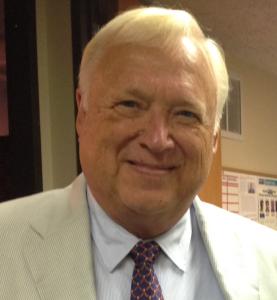
For Patheos, Ted Peters posts articles and notices in the field of Public Theology. He is a Lutheran pastor and emeritus professor at the Graduate Theological Union. He co-edits the journal, Theology and Science, with Robert John Russell on behalf of the Center for Theology and the Natural Sciences, in Berkeley, California, USA. His single volume systematic theology, God—The World’s Future, is now in the 3rd edition. He has also authored God as Trinity plus Sin: Radical Evil in Soul and Society as well as Sin Boldly: Justifying Faith for Fragile and Broken Souls. His book, God in Cosmic History, tracks the rise of Hinduism and Buddhism during the axial breakthrough 2500 years ago. See his website: TedsTimelyTake.com.
Watch for his new 2023 book, The Voice of Public Theology, published by ATF Press.
▓
Notes
[1] Patheos blogger Jack Wellman says that Christians believe in a one-way trip.“Does the Bible say that we have a second chance to get it right? I have found nothing in Scripture to indicate that. In fact, there are multiple dozens of Scriptures that say just the opposite. The Bible describes this life is a one-way trip. “
[2] “The terms Dharma Traditions and Dharma Studies—that is, the (i) singular, (ii) interrelated (inter-Dharma), and (iii) dialogical (interreligious) academic study of the three traditions that emerged in ancient India but are, at present, global in scope and experience” (Sherma 2018).Bibliography
Hick, John. 1976. Death and Eternal Life. New York: Harper.
Peters, Ted. 1991. The Cosmic Self: A Penetrating Look at Today’s New Age Movements . New York: Harper.
Santucci, James A. 2018. “Reincarnation.” In Routledge Companion to Death and Dying, by ed Christopher Moreman, Chapter 24. London: Routledge.
Sherma, Rita. 2018. “Inaugural Editorial.” Journal of Dharma Studies 1:1-3





